





Xylitol
Xylitol – white crystal matter, on caloric content close to sugar, and on sweet to sucrose, but not having biological value.
Xylitol 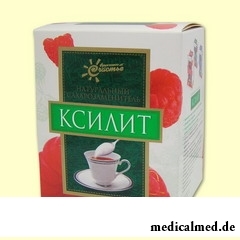 in the natural form contains in fibers of many fruit and vegetables and can be extracted from various berries, oats and mushrooms, and also from a peel of corn, a sugarcane and bark of a birch.
in the natural form contains in fibers of many fruit and vegetables and can be extracted from various berries, oats and mushrooms, and also from a peel of corn, a sugarcane and bark of a birch.
Industrial production of xylitol happens by processing of deciduous breeds of trees or corncobs which are hydrolyzed in xylose and are catalystically hydrogenated in xylitol. The biggest producer of xylitol in the world is China.
Xylitol was found almost at the same time German and French by chemists at the end of the 19th century and became popular in Europe as safe sweetener for people with a diabetes mellitus.
Xylitol is natural carbohydrate which looks and has taste of usual sugar. It is natural sweetener which can be extracted from any fibrous plant material.
Xylitol also contains in a human body – the average adult produces up to 15 grams of xylitol a day at a normal metabolism.
Xylitol use
In the food industry use of xylitol as dietary and diabetic sweetener is eurysynusic. Also xylitol is known as E967 nutritional supplement which is a moisture-holding agent, sweetener, the stabilizer and emulsifier. It is added in production of confectionery for patients with diabetes and obesity.
In chemical industry xylitol is used in production of synthetic pitches, surfactants and ethers.
Unlike other natural or synthetic sweeteners, xylitol is useful to health of teeth. It has the following properties: reduces the level of caries and remineralizes teeth.
The early researches conducted in Finland in the 1970th years found out that in comparison with sucrose use of xylitol does not lead to problems of an oral cavity or dedentition. The bacteria causing caries prefer six-carbon sugar or disaccharides while xylitol does not give in to fermentation and cannot be used as an energy source, interfering with growth of bacteria and their reproduction. Harmful microorganisms starve in the presence of xylitol that promotes remineralization of the injured teeth. The same property does xylitol unsuitable for production of bread as disturbs ability of yeast to digest sugar.
Having approximately for 33% smaller caloric content, than glucose, xylitol is more dietary substitute of food sugar. Being absorbed more slowly, than sugar, it does not increase its level in blood and does not lead to a hyperglycemia. This characteristic also was useful to the people suffering from a metabolic syndrome – a widespread disease which includes insulin resistance, arterial hypertension, a hypercholesterolemia and the increased risk of formation of blood clots.
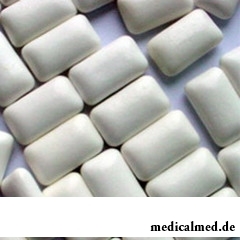 Xylitol is used as sweetener in drugs, chewing gums and pastils. Also xylitol possesses cholagogue and aperient action at the use about 50 g a day.
Xylitol is used as sweetener in drugs, chewing gums and pastils. Also xylitol possesses cholagogue and aperient action at the use about 50 g a day.
Use of xylitol is effective at treatment of acute infections of a middle ear. Researches show that chewing gums which part xylitol is can prevent acute average otitis. When bacteria get to an organism, they stick to fabrics, using various compounds of sucrose. Chewing of an elastic band and swallowing of saliva lead to clarification of a middle ear while presence of xylitol prevents growth of bacteria in ear trumpets which connect a nose and ears.
Also saline solutions of xylitol considerably reduce number of nasal koagulazonegativny staphylococcal bacteria, and nasal administration of xylitol is effective at asthma.
Properties of xylitol
Molecular formula of xylitol – C5H12O5, molar weight – 152.15 grams/mol, density – 1,52 g/cm ³, melting temperature – 92–96 °C, boiling temperature – 216 °C, solubility in water – ~ 1,5 g/ml.
Harm of xylitol
Xylitol does not cause in a human body of serious side effects. As well as the majority of sugar alcohols, it has laxative effect as sugar alcohols not completely break up in the course of digestion. In overdose cases harm of xylitol consists in abdominal distention, a meteorism and diarrhea.
Also harm of xylitol is shown at its use by dogs. Xylitol is the toxin dangerous to their life. It leads to decrease in level of sugar in blood of dogs and can lead to loss of coordination, a depression, a collapse and spasms. Reception of a dose of xylitol bigger, than leads 500-1000 mg/kg of weight to a liver failure at dogs which can be fatal.
People who got used to have breakfast regularly have obesity much less often.

The pancreas performs two functions in a human body: release of enzymes without which digestion carbohydrate is impossible...
Section: Articles about health
The way of life of people promptly changes from year to year: if about ten years ago the personal computer was not in each family, then today already very few people do without this device. Certainly, and children master the computer at full speed: they not only I play...
Section: Articles about health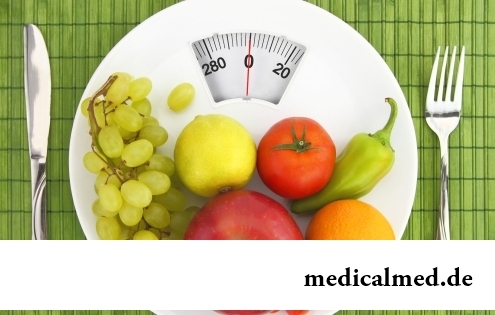
So, you resolved to lose weight. And now you try to understand what to begin with: from exercise stresses or a diet? And how to make that process of weight loss did not give you an inconvenience, and, on the contrary, brought joy?...
Section: Slideshow
Childbirth is the most important event in life of each woman. We are women we give birth to the new little man on this light. Now...
Section: Articles about health
No, probably, the person who would not have cold. Cold, cough, a headache – these symptoms are known to everyone. The peak of catarrhal diseases is the share of fall. SARS already came to schools and kindergartens, flu slowly makes the way to the cities, in a word, з...
Section: Articles about health
Each person supports all life a SARS about 200 times. The peak of incidence falls on cold season, but it is possible to get sick with a temperature and a pharyngalgia, and sometimes and very possibly, even during a heat. The reasons for development of catarrhal diseases there is a set: from the weakened immunity till an excess portion of ice cream....
Section: Articles about health
The problem of diagnosis was and remains to one of the most important in medicine. From that, the reason недо will be how precisely defined...
Section: Articles about health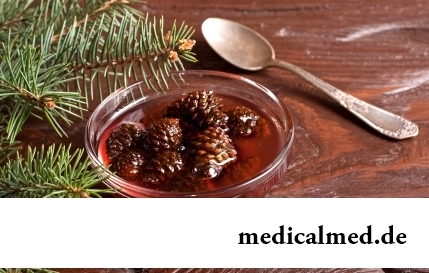
The pine is one of the most widespread plants of our woods. Its needles and pitch not without reason called by "gallipot" were since ancient times used for strengthening of protective forces of an organism, treatment of avitaminosis, anemia and many other diseases. In recent years wide п...
Section: Articles about health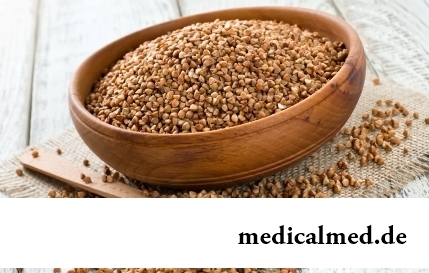
History of cultivation of a buckwheat contains more than five thousand years. Grain which is received from this plant is used for preparation of porridges, soups, baked puddings and puddings, do flour which is one of the main ingredients of the noodles popular in many countries of it. Buckwheat dishes are useful and tasty, they are perfectly combined with meat, milk, eggs, mushrooms, fruit and vegetables....
Section: Articles about health
Traveling all over the world, many try to try the most exotic dishes of national cuisines. Exists even so-called died away...
Section: Articles about health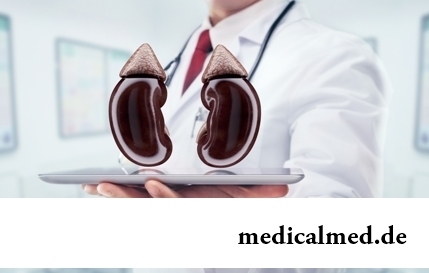
Kidneys perform the most important function of clarification of blood from those products of metabolic processes which cannot be used by an organism for obtaining energy and construction of new cells. With the urine produced by kidneys from a body of the person bulk is removed...
Section: Articles about health
The advantage of swimming for the person is so high that this sport is not only the most popular, but also is widely applied in medicine and rehabilitation processes. If you look for for yourself the occupation allowing pleasantly and to spend time, then swimming with advantage – the fact that it is necessary for you. And give learns several facts about swimming....
Section: Slideshow
Statistically cystitis 25-30% of women up to 40 years have. With age this indicator raises, besides many do not get in to become...
Section: Articles about health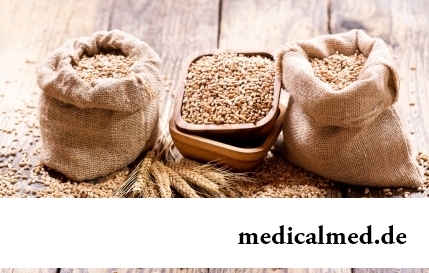
The concept "gluten" (differently, a gluten) combines group of the proteins which are a part of rye, barley and wheat. For most of people the use of the food stuffs containing a gluten not only is safe, but also it is very useful. Nevertheless, there is a number the myth...
Section: Articles about health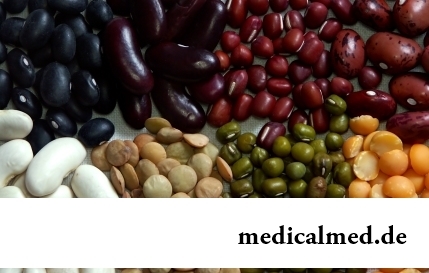
Ability of an organism to resist to adverse environmental factors (to impact of temperature drops, humidity and pressure, to the attacks of causative organisms, etc.) directly depends on what the person eats. Business here not only in that cells of a body received a necessary set of nutrients, vitamins and microelements. Scientists established that such components which are capable to influence negatively immune system, in connection with also are a part of foodstuff...
Section: Articles about health
Epilepsy is one of widespread neurologic diseases. To parents, whose children suffer from this illness, it is necessary...
Section: Articles about health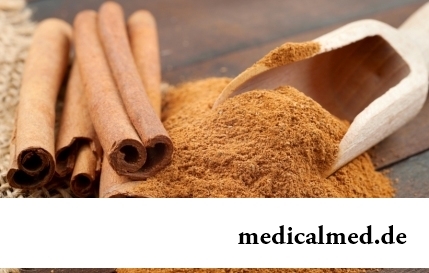
Ayurveda - the most ancient tselitelsky practice which came to us from India. It represents the doctrine about maintenance of physical, psychological and moral health of the person by means of the complex of procedures including a diet, cleaning of an organism, respiratory упр...
Section: Articles about health
Sugar - the digestible refined product which is not of special value for an organism of the modern person. The use of sugar in food is based rather on the psychological dependence caused by desire to indulge itself with something tasty, and further and the biological, caused need of an organism for glucose as a result of big emissions of insulin in blood. Such circulation of insulin and glucose with continuous increase in portions of sugar is rather offensive and can become the reason for a narusha...
Section: Articles about health
What they, women? Beautiful, gentle, passionate and at the same time windy, gusty, and nervous. And what is stranger: all эт...
Section: Articles about health
Impossibility to conceive the child – a trouble of many Russian families. During quite long time was considered that main "culprits" of troubles such are women. Modern physicians claim that the situation is different: about a half of failures at...
Section: Articles about health
Deciding to get rid of an addiction, not all imagine what effects it is necessary to face. Process of refusal of smoking causes quite essential discomfort in most of people: differences of mood, a sleep disorder, fatigue, decrease in physical and intellectual activity and a number of other symptoms reducing quality of life. Abstinence can be strong: an essential part of attempts comes to an end leaving off smoking failure, and people are returned to the use of cigars...
Section: Articles about health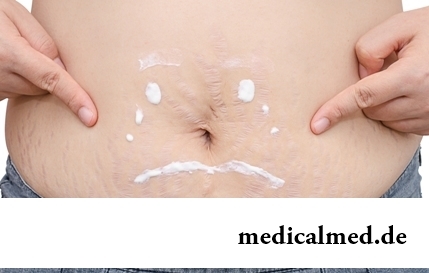
Striya (extension) are the defects of skin having an appearance of direct or wavy strips from 1 to 10 cm long and 1-5 mm wide. In the majority with...
Section: Articles about health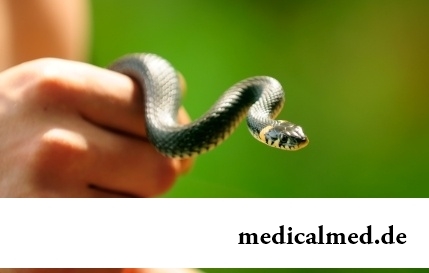
Health and attractiveness - eternal values, pursuing which people often use the most unusual ingredients and technicians. Let's consider 11 most exotic and sometimes not most pleasant Spa procedures to which the person in a pursuit for beauty agrees...
Section: Articles about health
Iodine - one of thirty most important microelements in our organism. The main role of iodine consists in synthesis of thyroid hormones of a thyroid gland - the substances which are responsible for the majority of exchange processes of an organism. It is known that thyroid hormones consist of iodine more than for 65%. The lack of iodine leads to decrease in production of hormones and, as a result, development of a hypothyroidism. The long condition of deficit can become a source of problems of the cardiovascular, bone, digestive SI...
Section: Articles about health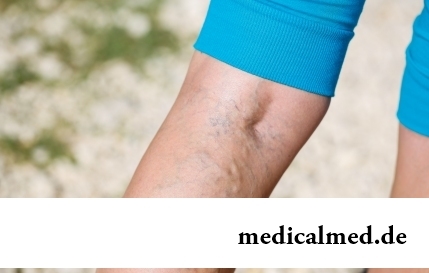
The varicosity has familiarly many, statistically, this disease more than a half of all adult population. As...
Section: Articles about health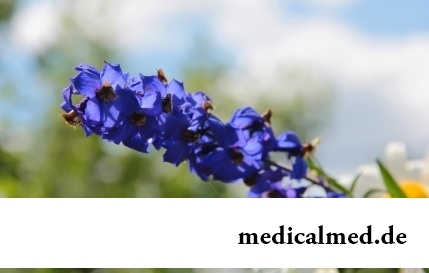
It is impossible to imagine human life in which there would be no plants. Practically in each apartment and any production room there are window plants, millions of people with pleasure are engaged in gardening and truck farming, many citizens пр...
Section: Articles about health
The modern person not always manages to find housing in the environmentally friendly region and such work which would not do harm to health. With food stuffs at first sight the situation is much better: shops are overflowed with goods which are positioned by producers as very useful and absolutely safe. Many Russians are absolutely sure that the choice of products with marking "bio", "эко" or "organik" guarantees them and members of their families an optimal variant of food. To a sozhala...
Section: Articles about health
